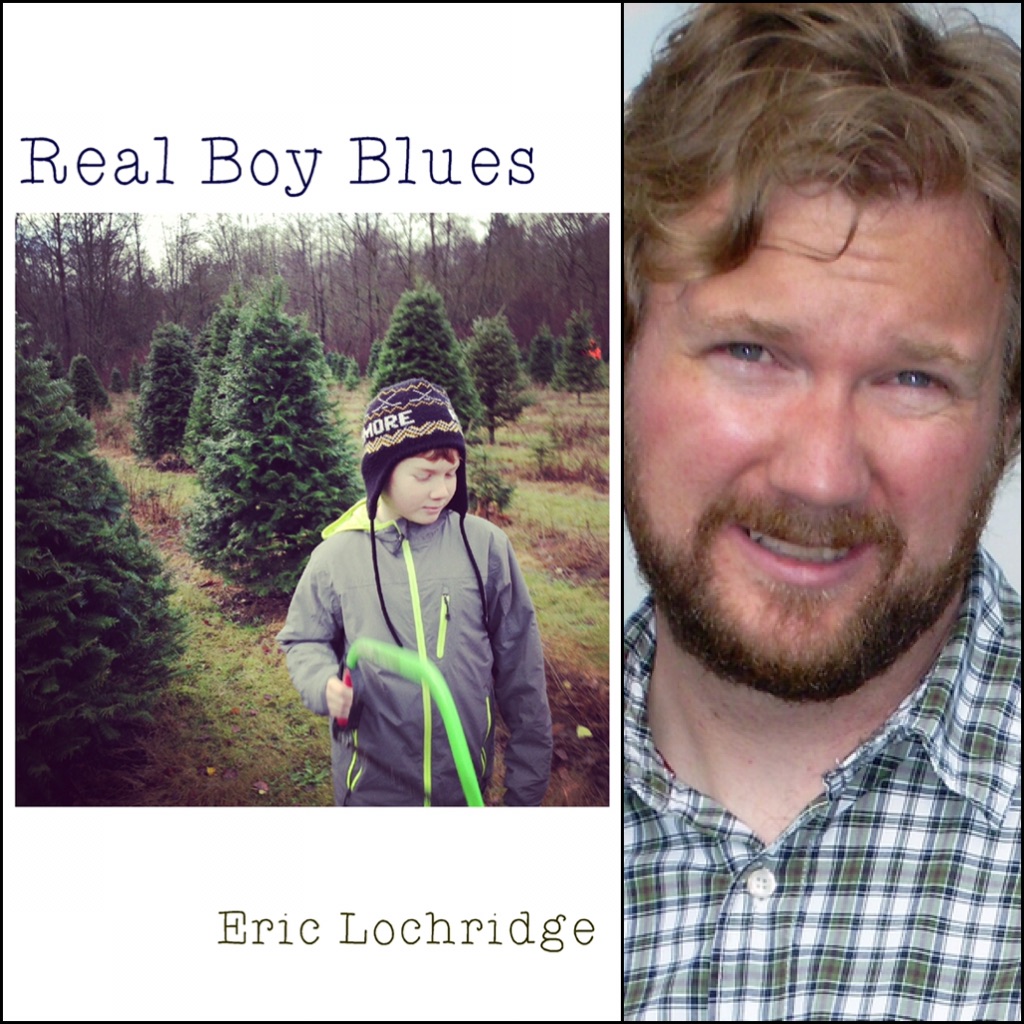Eric Lochridge’s poems haunt with clarity and move with grace. Even
when peering into Disney films, the Milky Way, Harvey Dunn paintings,
a tub of popcorn or a piece of moldy bread, the speakers of REAL BOY
BLUES are wanderers, hitchhiking, racing, and aging in pursuit of what
it means to be a man. They search the past for answers, revise the
present in fantasies, and forecast a future, leaving readers awash in
the sharp and poignant journey.
–Christine Stewart-Nuñez, author of Postcard on Parchment and Keeping
Them Alive
Rating:  [5 of 5 Stars!]
[5 of 5 Stars!]
Eric Lochridge writes beautifully about what we all want: home, family, connection. I admire his keen eye for description, whether that is for an aimless hitchhiker, Kennedy’s assassination, unspoken sexual desire, or the wandering heart in a brutal world. Here is a poet who explores the twilight landscape between loved ones and he is deeply mindful of what it means to be a child and a father. Lochridge knows how easily we bruise, and this is what makes Real Boy Blues a pleasure to read. In these pages are shadows of thoughts we have all had. Lochridge pins them onto the page for us.
–Patrick Hicks, author of Finding the Gossamer and This London
Rating:  [5 of 5 Stars!]
[5 of 5 Stars!]
What do I like about Eric Lochridge’s poems here? Two things at least. One is the range and variety: poems about hitch hiking, blindness, baseball, road kill, sons and their fathers, even JFK’s assassination in Dallas in the 60s. Not only that, but the poems’ images shift between realistic and the nearly-surreal; for instance, the realistic and visual opening lines of “Waterslide”: “The father plops down at the top and parts the water/with his thighs to carve out a cove for his skittery son—” and then the surprising opening lines of “Movie Night”: “He wants to be the popcorn,/the hot handfuls she hungrily scoops/ from the warm bowl of his presence . . .”
The other thing I like here is Lochridge’s epigrammatic talent: in other words, how, in the tradition of, say, Stephen Crane, he is able to strike a universal chord in just a few lines. For instance, in the brief poem, “The Race,” we see a man running up a hill, his “fists fighting for brightening sky,/feet pushing steadily against the ground . . .” and then the final line with its wise and memorable truism about impermanence: . . . “that one day will pull him under.”
Though still young, Lochridge has seen a lot, done a lot—and he knows, as Blake knew, that human beings are made for both joy and woe (or as the title says), blues.
–David Allan Evans, poet laureate of South Dakota
Rating:  [5 of 5 Stars!]
[5 of 5 Stars!]
![]() [5 of 5 Stars!]
[5 of 5 Stars!]





Reviews
There are no reviews yet.